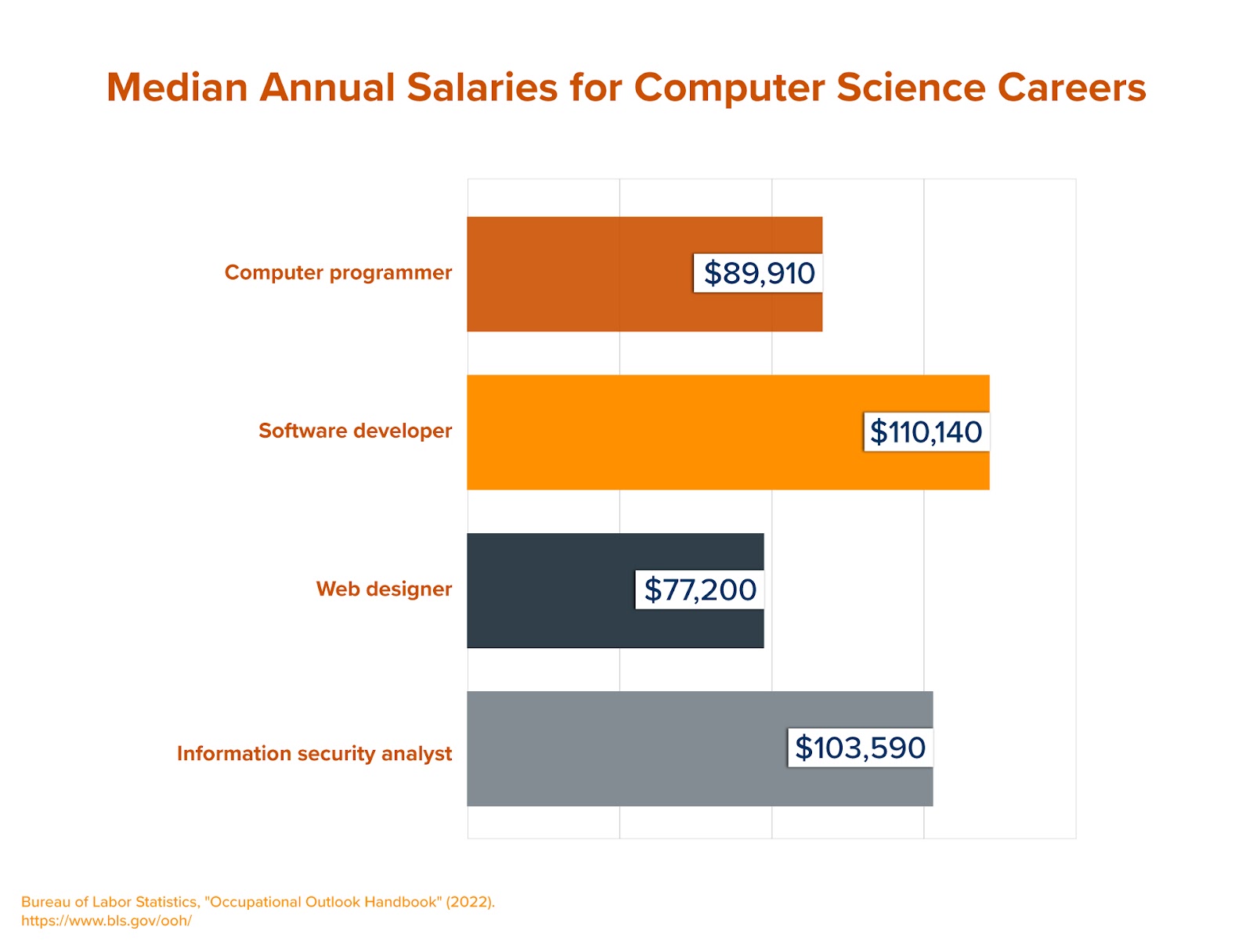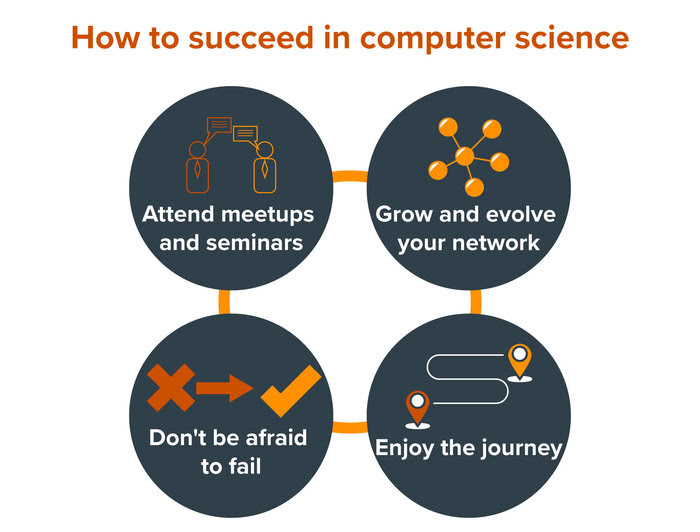Enrolling in a coding boot camp
Coding boot camps offer an accelerated, cost-effective way to pursue a career in computer science. On average, boot camps last between three to nine months, offering both full-time and part-time options that fit with most schedules. Virtual formats are also an option for those looking to study during off-hours, from the comfort of home.
If you decide to pursue a coding boot camp, it’s important to first determine what type of coding you want to learn, and what your future goals are for the knowledge you’ll gain in a coding boot camp. If you’re interested in pursuing a career in computer science, a coding boot camp can provide the foundation for languages and tools used in day-to-day roles and responsibilities. However, additional training may be necessary to pursue a career in certain specialized fields.
Coding boot camps offer an array of options for those looking to pursue web development — or the creation and optimization of web-based applications. For individuals looking to pursue a career in web development through a coding boot camp, front end, back end, and full stack coding options are available to learn.
If you decide to enroll in a full-time coding program, a typical workload includes 20 hours of class time, along with 25 hours of assignments and projects to be completed outside of class. While this may sound rigorous, it’s a time-efficient option for those who want to make a quick career pivot. Part-time coding boot camp options typically include two classes per week — along with 25 hours of work outside of class weekly.
Pricing for coding boot camps is substantially more competitive than pursuing a degree. According to data collected by Best Colleges, the average cost for a coding boot camp was around $13,000 in 2021.

 Live Chat
Live Chat


